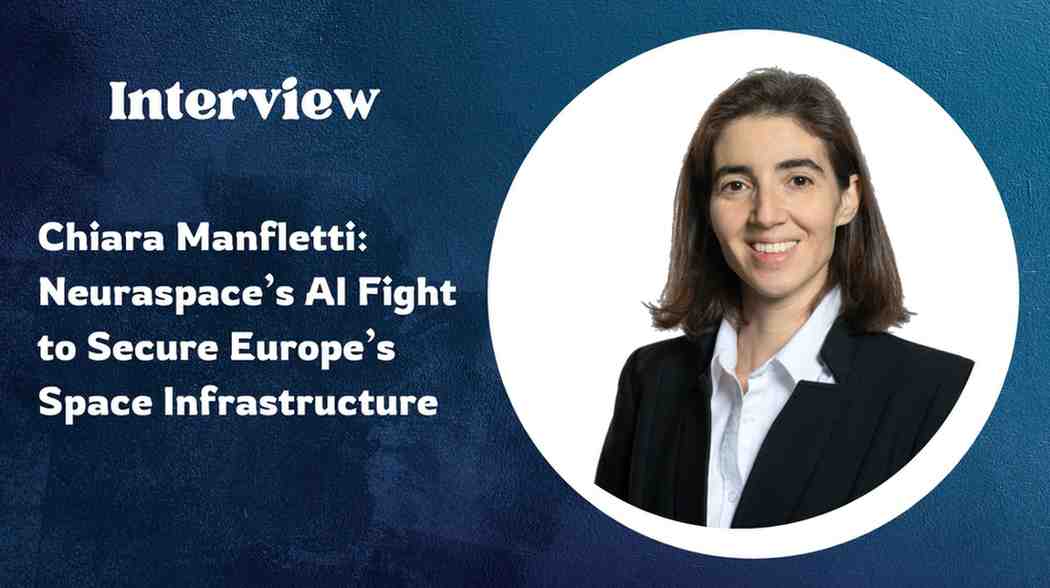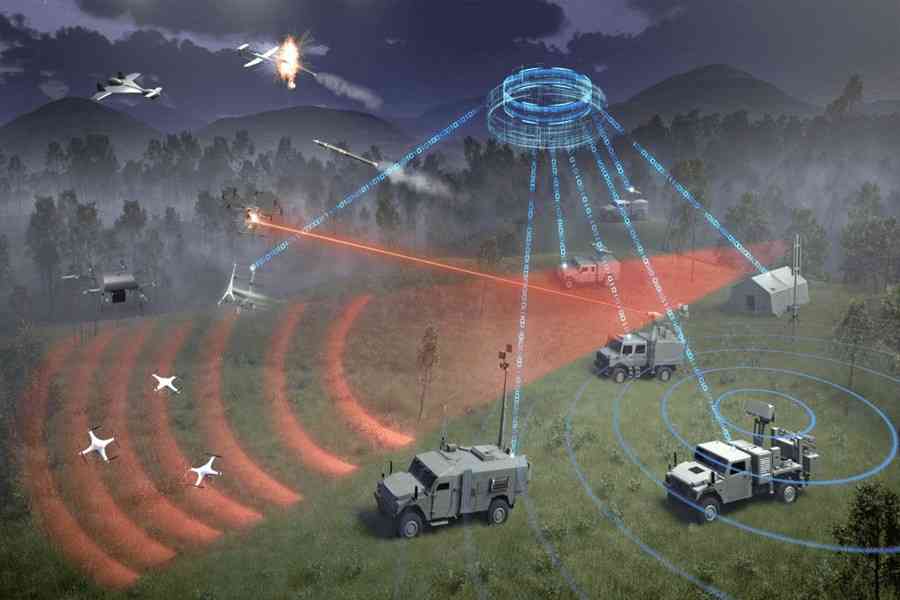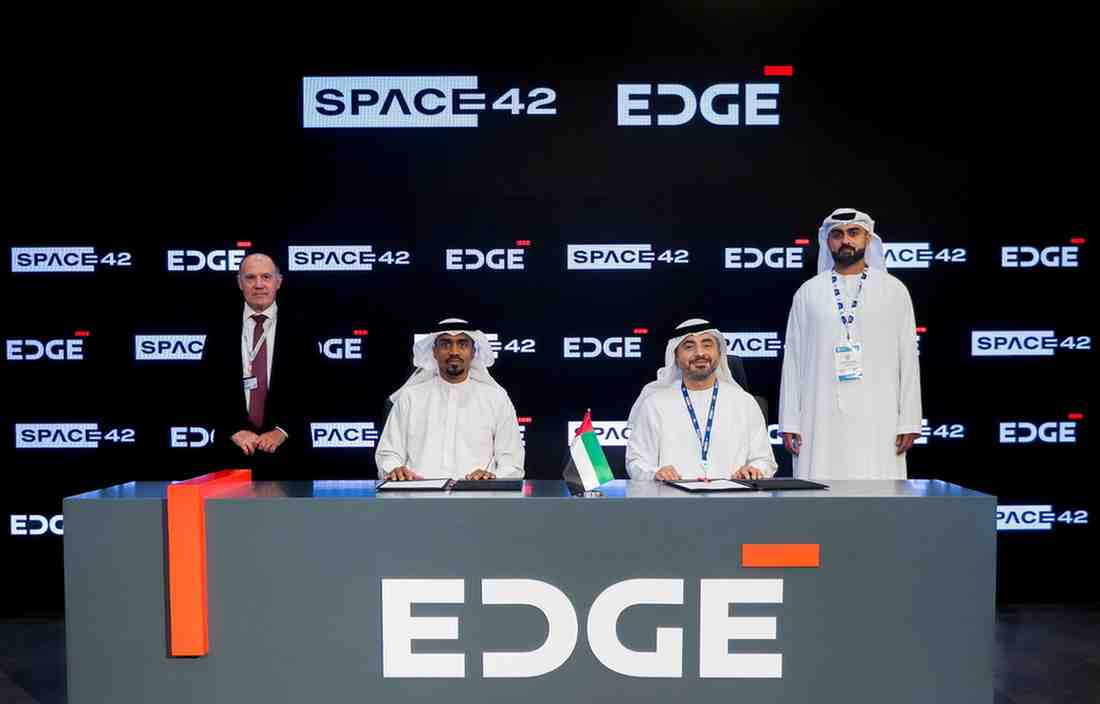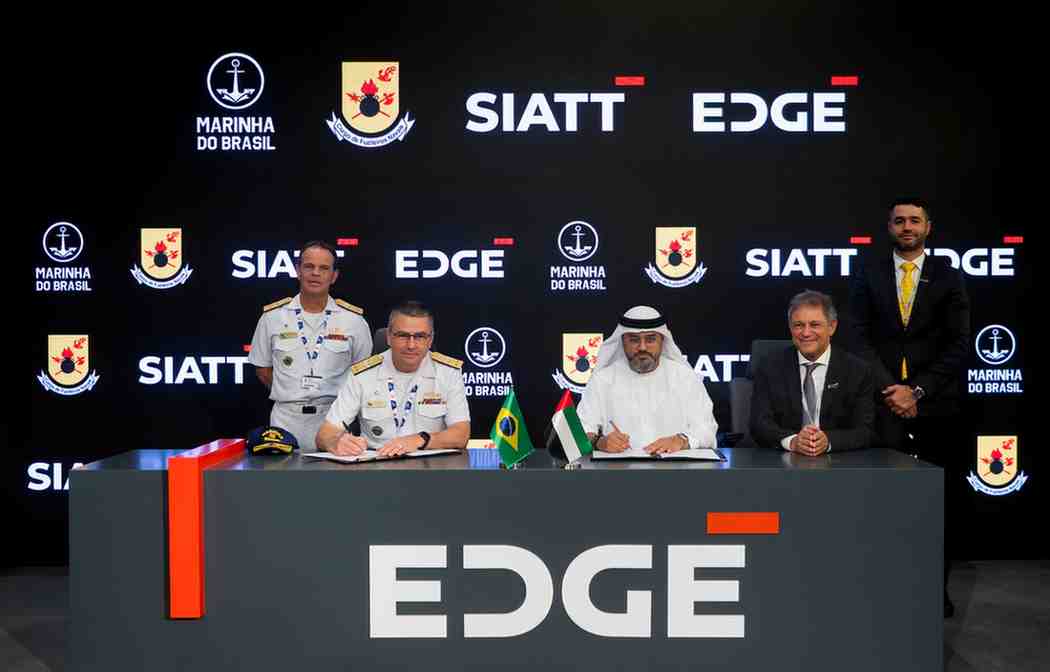Prof. Dr. Chiara Manfletti is the CEO of Neuraspace and holds the Chair of Space Propulsion & Mobility at the Technical University of Munich. A former research engineer at the German Aerospace Center (DLR) and senior programme adviser at the European Space Agency—where she led policy and programmes coordination—she was also nominated as the inaugural president of Portugal’s national space agency. In an exclusive interview with Global Defense Insight, Prof. Manfletti outlined Neuraspace’s AI-driven approach to space-traffic management and space-domain awareness, and the company’s growing emphasis on defence and dual-use solutions to protect critical space infrastructure.
- Neuraspace is emphasizing the defence and dual-use sector. Could you explain the drivers behind this strategic shift, and how rising geopolitical tensions have shaped your priorities?
Neuraspace has always recognised that its technology carries a defence and dual-use dimension, addressing “congestion” as well as “contestation”. What we are doing now is making this explicit, in response the increasing demand for resilient capabilities from partners and customers alike. Rising geopolitical tensions highlight what was already clear. Our mission remains to provide end-users with trusted, sovereign capabilities that serve both commercial operators and defence users.
- Space domain awareness and traffic management are increasingly being treated as strategic capabilities. What role do you see Neuraspace playing in safeguarding Europe’s critical space infrastructure?
Neuraspace enables Europe to monitor and secure the space assets on which our economies, societies, and defence depend. By fusing sensor data into actionable insights, leveraging physics-informed AI models, and ensuring interoperability with European partners, we help build a resilient layer of protection for critical infrastructure. Our role is to provide the independent, sovereign backbone for Europe’s space domain awareness.
- Your upcoming solution addresses threats ranging from cyberattacks and jamming to proximity operations. What are the main challenges in distinguishing accidental incidents from hostile acts in orbit?
The central difficulty is intent attribution. A manoeuvre may be routine, negligent, or deliberately hostile. Similarly, anomalies can arise from natural, technical, or adversarial causes. Neuraspace reduces ambiguity by combining anomaly detection, multi-source data fusion, and contextual analysis – all anchored in physics-based models. While political authorities ultimately judge intent, our technology provides the evidence base for credible, timely decisions.
- How critical is it for Europe to build sovereign capabilities in space surveillance and domain awareness, rather than relying heavily on U.S. or allied systems?
Sovereignty in this domain is essential. Reliance on external systems creates vulnerabilities in crisis, limits independent decision-making, and weakens Europe’s role in shaping global space governance. Neuraspace provides the AI-driven tools and services that allow Europe to act independently, verify information, and engage internationally from a position of strength. Equally, our partners need to be able to rely on strong capable allies. Europe needs to be strong for itself and its allies. It is that simple.
- Neuraspace has built its foundation on AI-driven traffic management. How does AI enhance resilience and operational superiority in space traffic management compared to traditional methods?
Neuraspace’s AI roadmap progresses deliberately: from augmenting human decision-making, to enabling automation, and ultimately to selected autonomy. Each step remains anchored in physics and explainability, ensuring trust and accountability. Compared to traditional manual methods, this approach allows earlier detection of risks, faster evaluation of manoeuvre outcomes, and reduced operational burden, giving operators and defence users decisive advantages in resilience and speed.
- With over 500 satellites under monitoring, how do you ensure scalability and real-time accuracy as mega-constellations continue to grow?
Our system was designed for scale right from inception. Cloud-native infrastructure, physics-based digital twins, and automated ingestion pipelines allow us to maintain accuracy and timeliness even as the number of objects grows into the tens of thousands. Continuous validation, supported by partnerships across ground and in-orbit sensors, ensures reliability without compromise.
- Many defence stakeholders argue that “space is the new high ground.” From your perspective, how does Europe’s approach to space security differ from the U.S. or China?
Europe’s approach is characterised by multilateralism, regulation, and sustainability. The U.S. and China primarily frame space as a theatre of competition and dominance, whereas Europe seeks to safeguard stability while maintaining strategic autonomy. Neuraspace reflects this European ethos: combining technological security with transparency and sustainability and with the clear ambition to be strong and reliable.
- Peacekeeping is an interesting angle for Neuraspace’s work. How do you envision space traffic management contributing to conflict prevention and confidence-building among spacefaring nations?
Transparency is the foundation of trust. By providing verifiable, physics-based data on orbital behaviour, Neuraspace reduces the risk of miscalculation and escalation. Our systems enable cooperative information-sharing, create shared situational awareness, and support confidence-building measures – making space traffic management a genuine instrument of peacekeeping.
- Looking ahead, do you believe Europe is prepared for the new “space security era,” and what role will Neuraspace play in shaping it?
Europe is taking important steps, but the pace of geopolitical and technological change demands greater urgency. Preparedness will hinge on combining political will with sovereign industrial capabilities. Neuraspace’s role is to ensure that Europe has trusted, explainable, AI-enabled tools for space domain awareness and traffic management, allowing it not only to respond to the new security era but to shape the norms that govern it.
- Global Defense Insighthttps://defensetalks.com/author/umair/
- Global Defense Insighthttps://defensetalks.com/author/umair/
- Global Defense Insighthttps://defensetalks.com/author/umair/
- Global Defense Insighthttps://defensetalks.com/author/umair/












